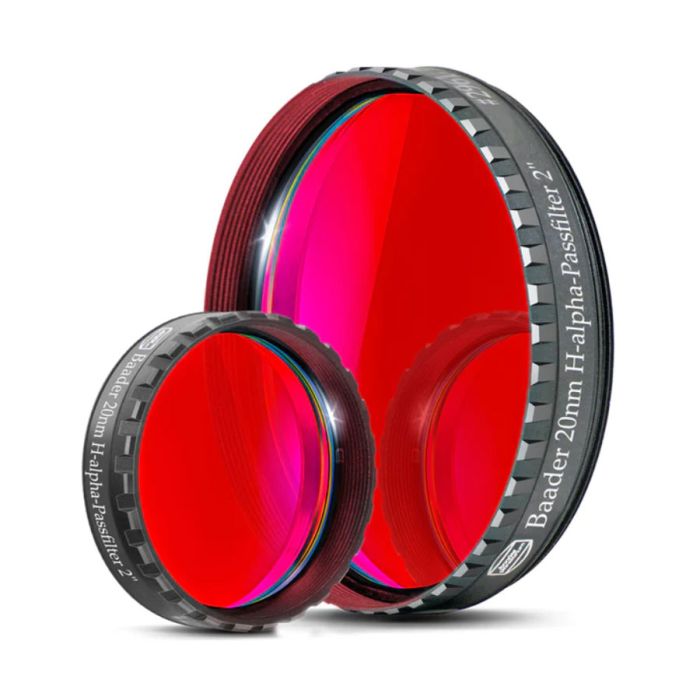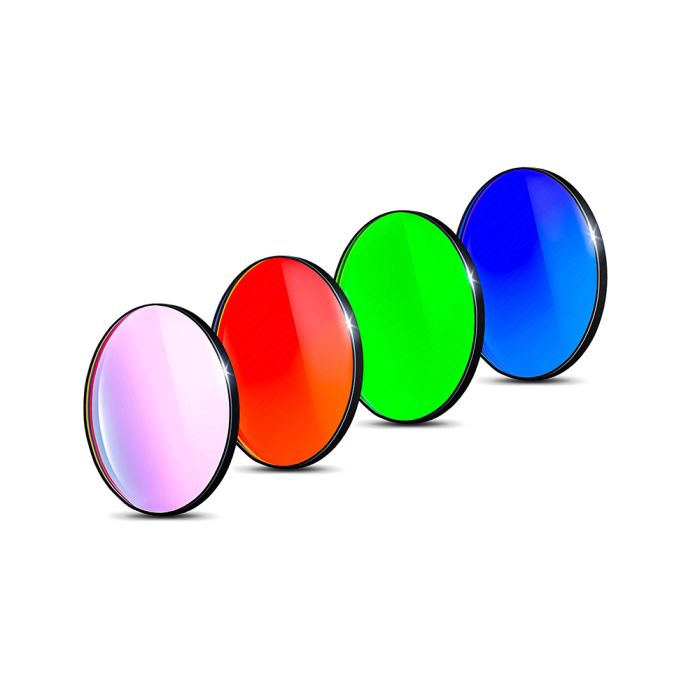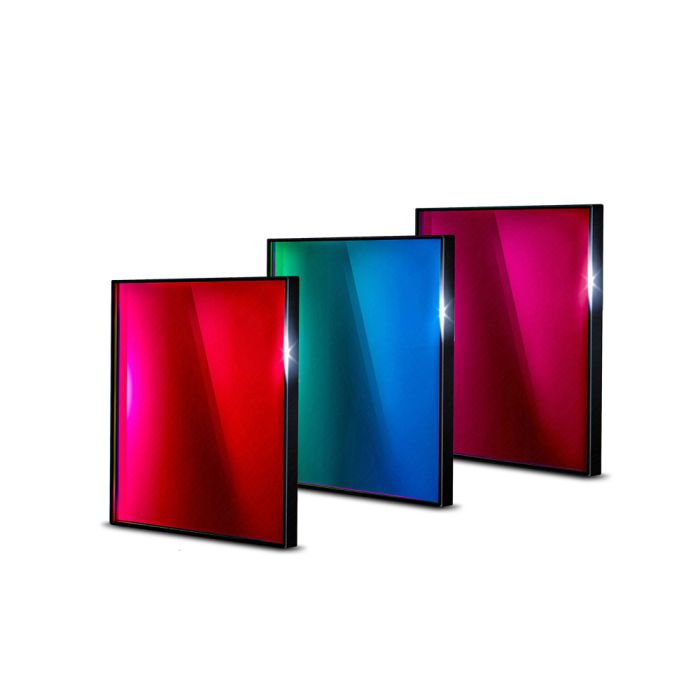
Baader filters are well-known for their precision and quality, enhancing both visual observation and astrophotography. Their moon and planetary filters improve contrast, revealing fine surface details on the Moon, Mars, Jupiter, and more. Solar filters from Baader are crafted with safety in mind, allowing clear views of the Sun without harming your eyes. Narrowband filters isolate key wavelengths like H-alpha, OIII, and SII, making them essential for imaging emission nebulae. These filters help astrophotographers produce sharp, high-contrast images even in light-polluted areas. Baader’s coatings ensure minimal light loss and accurate color balance. Their filters are compatible with a wide range of telescopes and cameras, adding flexibility to your setup. Whether you're imaging or observing, Baader provides filters to suit various astronomical needs. The brand’s innovation in filter technology ensures long-lasting performance. No matter your level of experience, Baader filters deliver reliable results for every skywatcher.
Highlighted Products
Featured Product 1
The Baader 2" 20nm H-alpha Bandpass Filter is a high-performance filter for deep-sky imaging and RGB applications, ideal for visual use at night and astrophotography with CCD and CMOS cameras. It captures H-II regions, provides brighter stars, and offers high-contrast imaging with reduced light pollution.
Featured Product 2
The Baader 36 mm CMOS Optimized LRGB Filter Set is a top-tier filter set for modern astrophotography. It enhances the performance of CMOS cameras and is compatible with various telescope focal ratios. It offers 98% transmission of visible light, UV/IR blocking, and high transmission across all RGB channels for improved star images.
Featured Product 3
The Baader 3.5/4nm f/2 Ultra-Highspeed 50x50mm CMOS Optimized Filter Set is ideal for Celestron RASA astrographs, featuring H-alpha, OIII, and SII filters with 3.5nm and 4nm bandwidths. It enhances contrast, minimizes star size, and reveals nebula details.
Featured Product 4
The Baader 2" CMOS Optimized UV/IR Cut Luminance Filter is designed to enhance image sharpness by blocking unwanted ultraviolet and infrared light. It helps prevent color distortion and improves clarity in visual observation and astrophotography. This filter is beneficial when using sensitive CMOS sensors, ensuring accurate luminance data. Its precision coating and optical quality make it a trusted choice for serious astronomers.
Featured Product 5
While studying the lunar surface under high magnification, the Baader 1.25" Double Polarizing Filter proved quite useful for adjusting the brightness levels. By rotating one of the polarized plates, observers can modulate the light transmission to enhance contrast and diminish glare. This filter effectively dimmed the brightness to tolerable levels without compromising detail for views that may otherwise be overexposed. Both amateur stargazers and seasoned astronomers will benefit from the simple yet powerful control this filter provides through standard 1.25" eyepiece threads. Whether glimpsing the subtle shadings on a crisp full Moon or picking out faint mare features, the Double Polarizing Filter helps optimize observing conditions across a wide range of celestial sights.
More About This Category
When improving the astronomical viewing experience, telescope filters are essential since they offer extra flexibility and personalization to the observer's night sky study. These optical add-ons are necessary for amateur and professional astronomers, providing a way to adjust and filter light entering the telescope to reveal details of celestial objects that would otherwise be lost or obscured. With so many filters on the market that target specific light wavelengths or features, amateur astronomers can customize their observations to fit particular astronomical goals.
There are various telescope filters, each designed to transmit or block specific wavelengths of light selectively. These filters allow users to isolate particular features of celestial objects or enhance their visibility under different conditions. As technology advances, the available telescope filters will likely expand, providing astronomers with even more options to explore the vast and captivating cosmos.
Types of Baader Planetarium Filters
1. Moon and Skyglow Filter is a multi-layer filter that enhances visual contrast when studying the moon and planets. Its selective glass materials and multi-layer coating reduce atmospheric turbulence and light pollution. This allows astronomers to study celestial objects in less-than-ideal conditions.

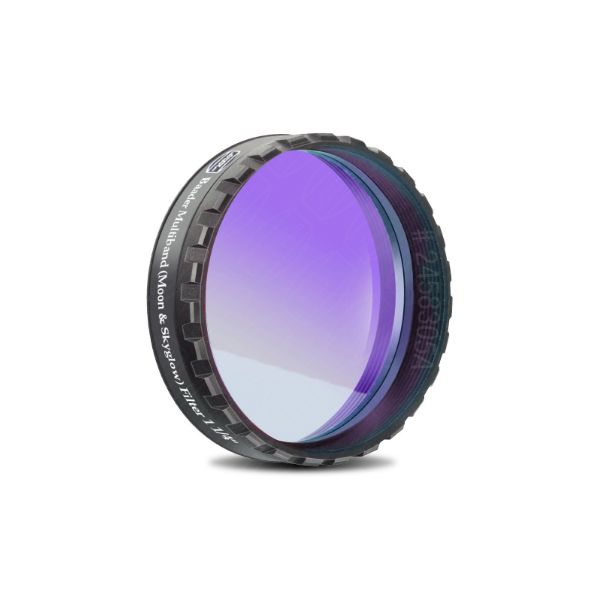
2. Contrast Booster Filter - enhances the contrast of deep-sky objects by suppressing light pollution and highlighting critical spectral lines. It minimizes reflections and internal stray light. It gives stunning images with increased dynamic range and clarity.

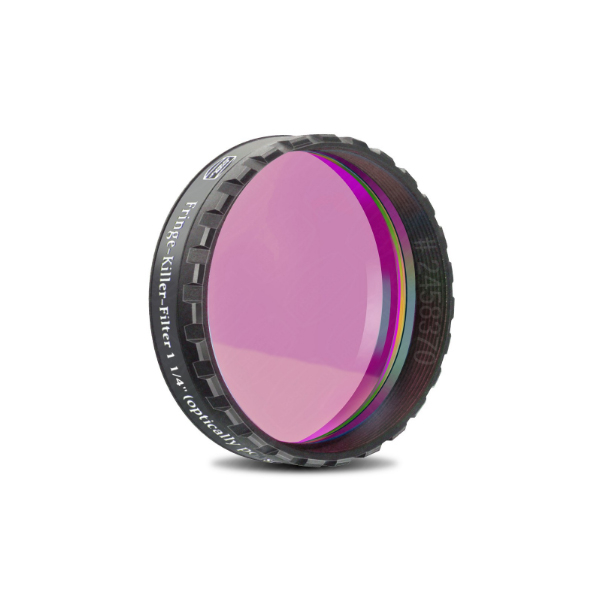
3. Solar Continuum Filter - created for solar observers to enable in-depth examination of the sun's surface characteristics. It is a vital tool for astronomers that separates visually significant Fraunhofer lines in the solar spectrum for a better view of solar granulation and faculae.

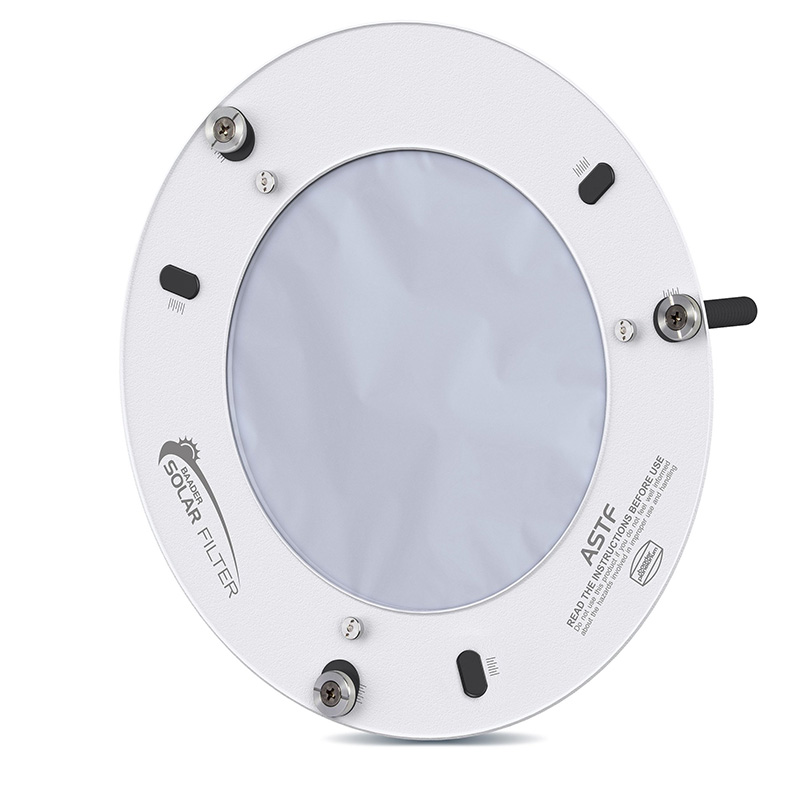
4. Color Filters - improve the visibility of specific features on planets, such as Martian surface details, Jupiter cloud bands, and Mars polar ice caps. Astronomers can customize their observations to these planetary characteristics.
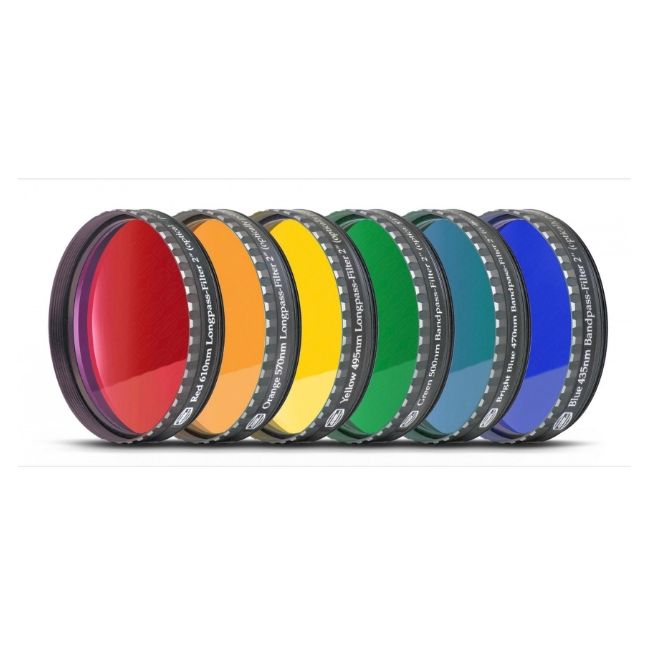
5. Narrowband Filters - include the H-alpha and O-III filters, capture celestial gas clouds' ethereal glow. The H-alpha filter isolates the hydrogen-alpha wavelength, revealing intricate details in emission nebulae, while the O-III filter enhances the visibility of doubly ionized oxygen.
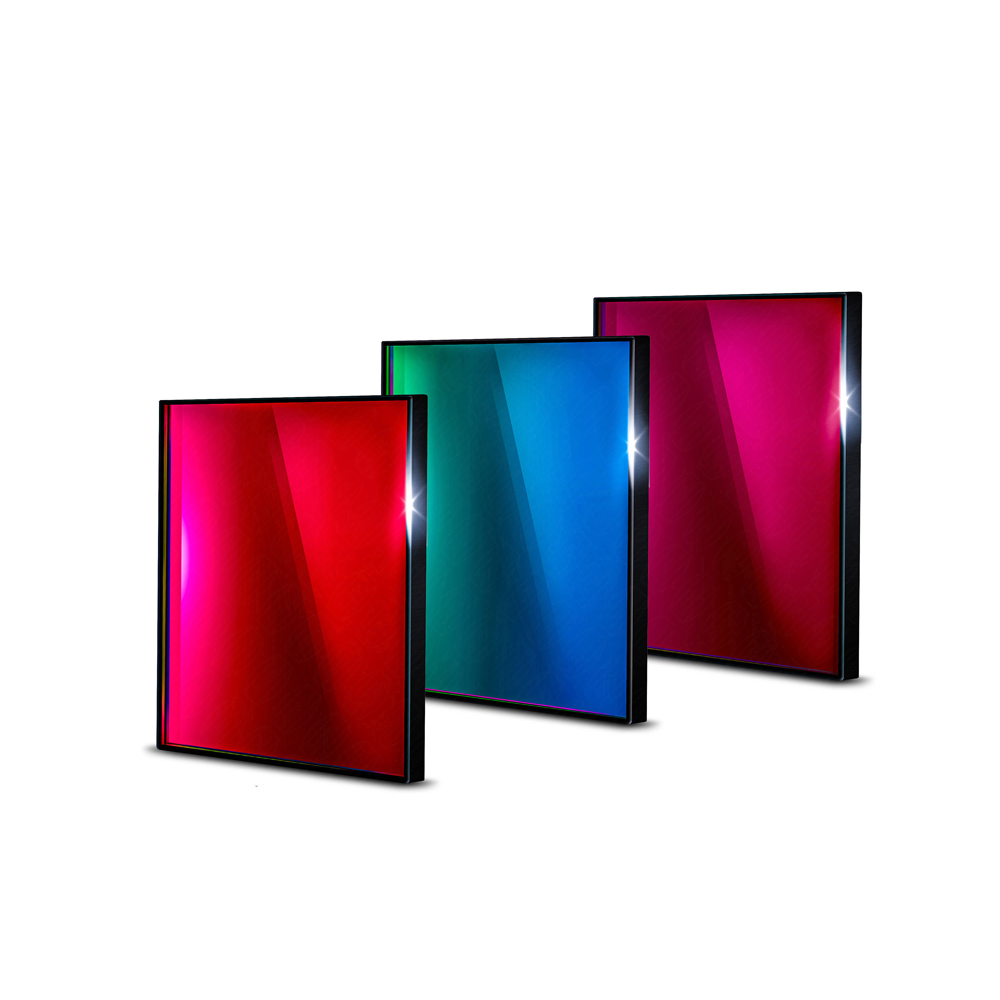
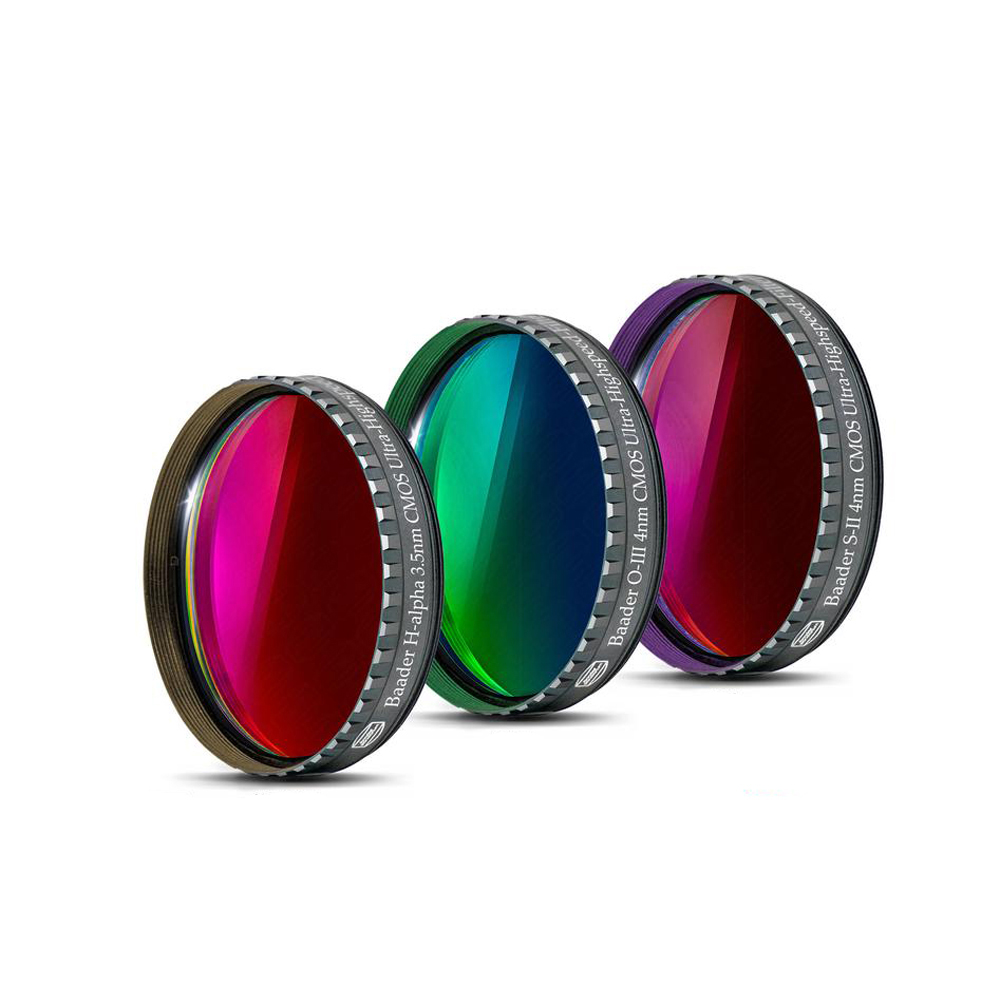
Baader Planetarium filters offer optical excellence for astronomers, providing clarity and details when observing celestial objects. Their comprehensive range of filters covers a spectrum of wavelengths, catering to astronomical observations such as planetary viewing, lunar observations, and deep-sky imaging. This diversity allows astronomers to tailor their equipment to specific celestial events, enhancing the versatility of their telescopes and expanding the range of objects they can study.
Baader's astrophotography filters are innovative and designed to meet the needs of modern astrophotographers. They combat light pollution, enhance contrast, and provide clearer images of deep-sky objects, even in urban environments. Baader's precision coatings reduce reflections and ghosting, ensuring exceptional clarity. The filters are user-friendly and compatible with a wide range of telescopes, making them accessible to beginners and seasoned astronomers. They are often equipped with robust threaded mounts, allowing users to customize their telescope setups and maximize their observational capabilities.
Baader Planetarium filters are versatile and adaptable to various telescopic systems, allowing astronomers to integrate them seamlessly into their setups. This ensures a hassle-free and efficient observing experience, enhancing views and capturing the beauty of the night sky, whether using a dedicated astrophotography setup or a visual observing telescope. Although Baader offers various devices, such as diagonals and binoviewers, its filters are arguably its most well-known product. Baader Planetarium filters are made with the best glass substrates and are completed with unique optical coatings. They have constantly produced visually and photographically stunning results.
